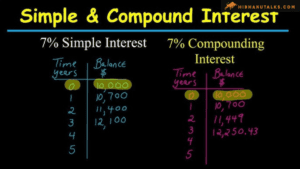
The Role of a Fund Manager in Mutual Funds
Contents
- 1 Fund Manager
- 1.1 The Role of a Fund Manager in Mutual Funds
- 1.2 Introduction to Fund Management
- 1.3 What is a Fund Manager?
- 1.4 Key Responsibilities of a Fund Manager
- 1.5 Skills and Qualifications of a Successful Fund Manager
- 1.6 Advantages of Having a Skilled Fund Manager
- 1.7 Disadvantages of Relying on Fund Managers
- 1.8 Types of Mutual Funds and the Role of Fund Managers
- 1.9 Conclusion
- 1.10 FAQs
- 1.10.1 1. What is the primary role of a fund manager in mutual funds?
- 1.10.2 2. How do fund managers decide which assets to buy or sell?
- 1.10.3 3. What’s the difference between active and passive fund managers?
- 1.10.4 4. What risks are associated with relying on a fund manager?
- 1.10.5 5. How can I evaluate the performance of a fund manager?
- 1.11 Fund Manager
- 1.12 Understanding Fund of Funds: A Comprehensive Guide to Mutual Funds Investing in Other Mutual Funds
Fund Manager
The Role of a Fund Manager in Mutual Funds
Mutual funds are one of the most popular investment vehicles for individuals looking to grow their wealth over time. They provide investors with a diversified portfolio, managed by professionals who aim to generate returns while minimizing risk. At the center of this process is the fund manager, a critical player whose expertise, decision-making, and market understanding directly impact the performance of the fund. In this article, we will explore the role of a fund manager in mutual funds, discussing the responsibilities, importance, skills required, and how they influence investor outcomes.


Introduction to Fund Management
In the world of mutual funds, the fund manager serves as the captain of the ship. Their role involves making crucial decisions about which securities to buy, hold, or sell to achieve the fund’s stated objectives. Mutual funds come in various types—equity funds, debt funds, balanced funds, and others—each requiring a different investment strategy. The fund manager must navigate the complexities of the financial markets, economic trends, and investor behavior to deliver consistent returns.
In simpler terms, a fund manager is responsible for managing the pool of money that investors contribute to the mutual fund. Their goal is to maximize returns while keeping risks within acceptable levels, aligned with the investment objectives laid out in the fund’s prospectus.
What is a Fund Manager?
A fund manager is a finance professional responsible for overseeing and managing an investment portfolio. Their job involves making strategic investment decisions to achieve a fund’s performance targets, while adhering to its risk profile and objectives.
There are two primary types of fund managers:
- Active Fund Managers: These managers actively buy and sell assets to outperform the market. They use their knowledge, research, and experience to select securities they believe will provide above-average returns.
- Passive Fund Managers: Rather than trying to beat the market, passive managers replicate a market index such as the S&P 500. Their goal is to mirror the performance of a particular index rather than outperform it.
The fund manager’s role becomes particularly crucial in active management, where the manager’s decisions can lead to substantial gains or losses for investors.


Key Responsibilities of a Fund Manager
A fund manager wears many hats, each of which is critical for the successful operation of a mutual fund. Here’s a breakdown of their primary responsibilities:
1. Portfolio Construction and Asset Allocation
One of the most important tasks a fund manager undertakes is constructing the portfolio. They decide which assets (stocks, bonds, or other securities) to include in the mutual fund based on its objectives. For instance, an equity fund manager would focus primarily on selecting stocks, while a debt fund manager would prioritize bonds or other fixed-income securities.
Asset allocation is a critical part of this process. The manager decides what percentage of the fund’s assets should be invested in different asset classes. For example, a balanced mutual fund may allocate 60% to equities and 40% to bonds, depending on the market conditions and fund’s goals.
Example: A fund manager running a balanced fund might allocate 60% of the fund’s assets to equities when the economy is in a growth phase and switch to 40% equities and 60% bonds during a recession.
2. Security Selection
Once the asset allocation is determined, the fund manager moves to the security selection process. This involves analyzing individual securities (such as specific stocks, bonds, or commodities) and deciding which ones to buy or sell. This process requires in-depth research and analysis of market trends, company performance, economic indicators, and other factors.
Example: If managing an equity fund, a fund manager may choose to invest in a growing tech company like Apple or Microsoft, anticipating significant gains over time. Alternatively, they may opt for a steady utility stock like Duke Energy during times of economic uncertainty for more stable returns.
3. Risk Management
Risk is inherent in any investment, and managing it is a critical responsibility for a fund manager. Their job is to ensure that the fund’s risk exposure aligns with its objectives and the risk tolerance of its investors. This can involve diversifying the portfolio, using hedging strategies, or simply avoiding risky securities.
Example: During a market downturn, a fund manager may reduce exposure to high-volatility stocks and increase holdings in more stable assets like government bonds to reduce the overall risk of the portfolio.
4. Monitoring and Rebalancing
Markets are dynamic, and so too are mutual fund portfolios. A fund manager must constantly monitor the portfolio’s performance and make adjustments when necessary. This could involve rebalancing the portfolio if certain assets have become overweight or underweight due to market fluctuations.
Example: If technology stocks in a mutual fund have performed exceptionally well and now represent 50% of the portfolio (up from an intended 30%), the fund manager might sell some tech stocks and reinvest in other sectors to maintain the desired balance.
5. Performance Evaluation and Reporting
Fund managers are accountable for the performance of the fund. They need to regularly evaluate how the fund is performing compared to its benchmark index or peer funds. If the fund is underperforming, they must figure out why and take corrective actions. Additionally, they are responsible for providing regular updates to investors, explaining the fund’s performance and any significant changes made to the portfolio.
Example: A fund manager might release a quarterly report explaining why the fund’s performance lagged behind its benchmark index due to unforeseen macroeconomic factors, such as rising inflation or political instability.
6. Adhering to Regulatory Guidelines
Fund managers must operate within a framework of regulations set by financial authorities. In the U.S., for example, the Securities and Exchange Commission (SEC) has strict rules governing mutual funds. A fund manager must ensure that the fund complies with these regulations to avoid penalties and protect investors’ interests.


Skills and Qualifications of a Successful Fund Manager
Managing a mutual fund is no easy task. A successful fund manager must possess a diverse skill set that includes:
1. Financial Expertise
A deep understanding of financial markets, economics, and securities is essential. Fund managers should be well-versed in analyzing financial statements, market trends, and economic indicators to make informed decisions.
2. Analytical Thinking
Fund managers need sharp analytical skills to evaluate complex data and make investment decisions that can impact the fund’s performance. This involves quantitative analysis, risk assessment, and strategic forecasting.
3. Decision-Making Skills
The ability to make quick, well-informed decisions is critical, especially in volatile markets. A fund manager’s decisions can mean the difference between a profitable or a loss-making fund.
4. Communication Skills
Since fund managers need to interact with clients, colleagues, and other stakeholders, strong communication skills are crucial. They must be able to explain complex investment strategies and performance metrics in a way that non-experts can understand.
5. Regulatory Knowledge
Fund managers must stay up to date with the legal and regulatory framework governing mutual funds. This ensures that their strategies and fund operations comply with all legal requirements.
Advantages of Having a Skilled Fund Manager
The role of the fund manager is crucial in ensuring the success of a mutual fund. Let’s look at some of the key advantages a skilled fund manager brings:
1. Expertise in Asset Allocation
A good fund manager can make informed decisions about how to allocate assets in a way that maximizes returns while minimizing risk. They have access to research, data, and analytics that individual investors may not, allowing them to make strategic decisions.
2. Professional Management
Investors benefit from having a professional manage their investments. Fund managers bring years of experience and knowledge, which can help to optimize returns and reduce the emotional biases that often affect individual investors.
3. Continuous Monitoring
Unlike individual investors who might not have the time or expertise to monitor the market continuously, fund managers keep a close eye on market developments. They can react swiftly to changes, adjusting the portfolio to seize opportunities or mitigate risks.
4. Diversification
Fund managers often manage diversified portfolios, spreading investments across multiple asset classes, sectors, or geographical regions. This reduces the risk for investors by ensuring that poor performance in one area is balanced by gains in others.
Disadvantages of Relying on Fund Managers
While having a professional fund manager can offer several advantages, there are also some downsides to consider:
1. High Management Fees
One of the most significant disadvantages of mutual funds, particularly actively managed ones, is the high management fees. These fees can eat into the returns, particularly in a low-performing fund.
Example: If a mutual fund charges a 2% management fee and earns a 5% return, the investor’s net return is only 3%. Over time, these fees can significantly reduce the investor’s overall gains.
2. Manager Performance Risk
While fund managers aim to outperform the market, there is no guarantee that they will succeed. Even skilled fund managers can make mistakes or suffer from bad luck, leading to underperformance.
3. Lack of Control
Investors in mutual funds have little to no say in the individual investments made by the fund manager. This lack of control may frustrate some investors who prefer to be more hands-on with their investments.


Types of Mutual Funds and the Role of Fund Managers
There are various types of mutual funds, each with different objectives and requiring a different approach from the fund manager. Here are some common types:
1. Equity Funds
Equity funds invest primarily in stocks. The fund manager’s role is to select stocks that they believe will appreciate in value over time, balancing between growth and value stocks.
Example: A fund manager of an equity fund may choose to invest in high-growth companies like Amazon or Tesla during periods of market optimism, aiming for capital appreciation.
2. Debt Funds
Debt funds invest in bonds or other fixed-income securities. The fund manager focuses on generating steady income for investors while minimizing risk.
Example: A debt fund manager might invest in government bonds or high-quality corporate bonds to provide a steady income stream with low risk.
3. Balanced Funds
Balanced funds invest in a mix of stocks and bonds. The fund manager’s role is to balance risk and return, adjusting the asset allocation depending on market conditions.
Example: A balanced fund might hold a 50-50 split between equities and bonds during stable economic periods but shift to 40% equities and 60% bonds during periods of market uncertainty.
Conclusion
The role of a fund manager in mutual funds cannot be understated. These professionals are tasked with the critical responsibility of managing investor money, making strategic decisions about where and when to invest, and ensuring that the fund stays on track to meet its objectives. Their expertise, decision-making abilities, and market insights play a significant role in determining the success of a mutual fund. While investors benefit from professional management, they also need to be aware of the potential downsides, such as fees and the risk of underperformance. Ultimately, a skilled fund manager can provide value through expertise, diversification, and continuous monitoring, making mutual funds a popular choice for investors looking for professional management of their assets.


FAQs
1. What is the primary role of a fund manager in mutual funds?
The primary role of a fund manager is to manage the mutual fund’s portfolio by making decisions on asset allocation, security selection, and risk management to achieve the fund’s objectives.
2. How do fund managers decide which assets to buy or sell?
Fund managers use a combination of market research, financial analysis, and economic forecasting to make informed decisions about which assets to buy or sell. They consider the fund’s objectives and risk tolerance when making these decisions.
3. What’s the difference between active and passive fund managers?
Active fund managers actively buy and sell securities to outperform the market, while passive fund managers aim to replicate the performance of a specific market index, such as the S&P 500.
4. What risks are associated with relying on a fund manager?
Relying on a fund manager carries risks such as underperformance, high management fees, and lack of control over individual investment decisions.
5. How can I evaluate the performance of a fund manager?
Investors can evaluate a fund manager’s performance by comparing the mutual fund’s returns against its benchmark index and peer funds, as well as assessing the risk-adjusted returns over time.
Fund Manager
Understanding Fund of Funds: A Comprehensive Guide to Mutual Funds Investing in Other Mutual Funds





















1 comment